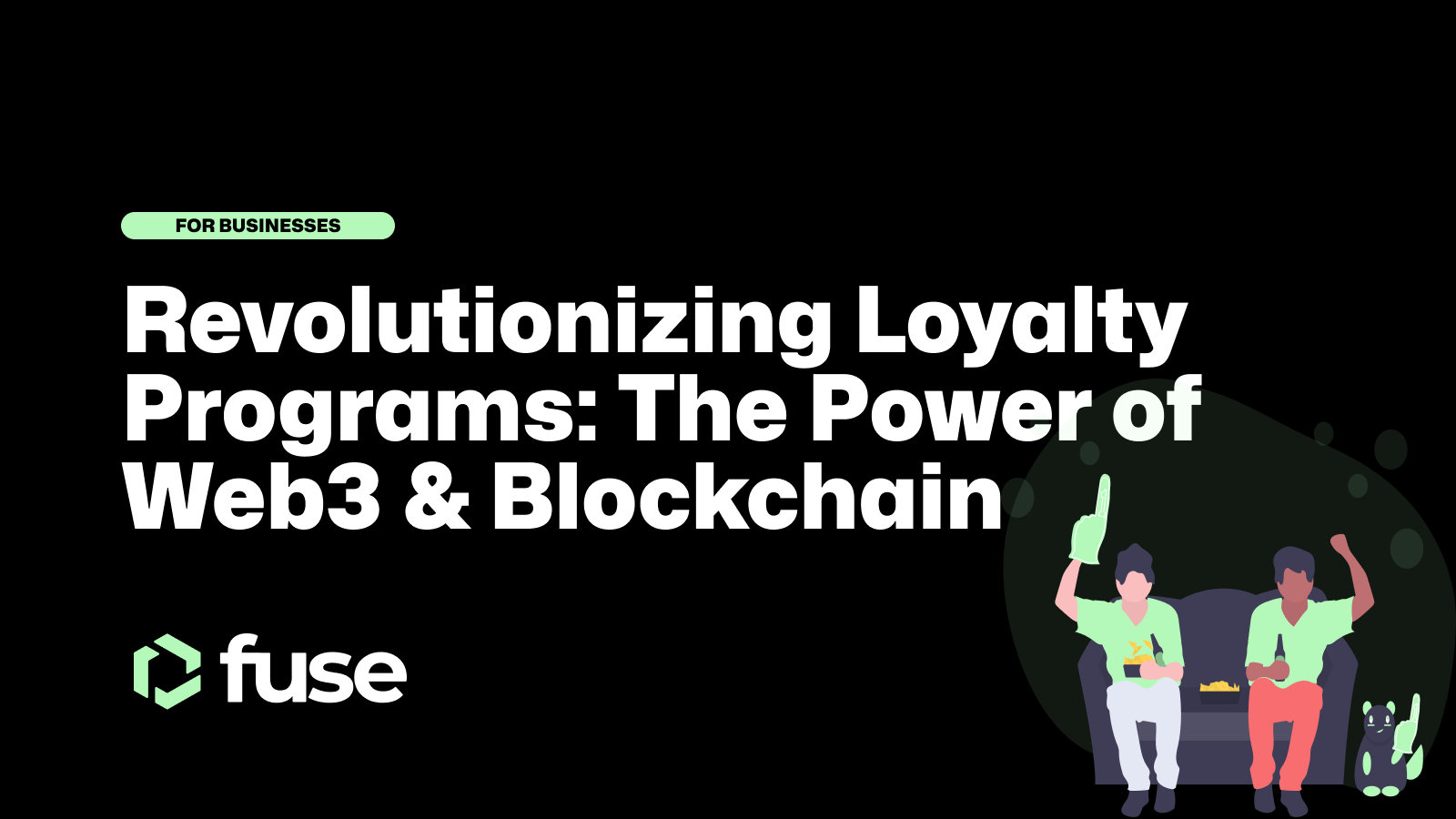In an era of rapid digital transformation, businesses face new challenges when retaining customer loyalty. The landscape of loyalty programs is shifting significantly as traditional approaches struggle to keep up with evolving consumer behavior and heightened market competition.
Key points:
- Web3 and blockchain technology are revolutionizing traditional loyalty programs.
- They enable tokenized loyalty points that can be seamlessly exchanged, reducing customer lock-in.
- Blockchain ensures transparency, security, and traceability of loyalty transactions.
- Decentralized finance (DeFi) principles can enhance loyalty programs by enabling users to earn interest on their tokens.
- This innovation provides businesses with flexible, customer-centric loyalty solutions while empowering consumers with greater control over their rewards.
Despite an annual expenditure of a staggering $75 billion on loyalty initiatives, the fickleness of modern customers has posed a substantial challenge. A recent study by TechSee revealed that as much as 38% of consumers were willing to switch brands following an engagement. This shows that traditional loyalty points and rewards are insufficient for customer retention.

The lackluster performance of traditional loyalty programs can be attributed to various factors, including weak incentives and limited control. Customers today are more discerning and expect tangible value from their loyalty efforts. With this growing demand, traditional programs often fail to offer compelling rewards that resonate with consumers.
Moreover, customers’ limited control over their accumulated points and rewards contributes to a sense of detachment and eventually leads to churn. Imagine collecting thousands of loyalty points only to realize they must be spent in a store where you no longer visit or need their goods. Worse still, you lose your physical loyalty card and, as a result, your rewards.
Web3 Loyalty Programs: A Paradigm Shift
Enter Web3 loyalty programs – a revolutionary approach that utilizes blockchain technology to address the shortcomings of traditional loyalty initiatives. By harnessing the power of blockchain and non-fungible tokens (NFTs), these programs are designed to provide unique and exclusive benefits to loyal customers, fostering more profound engagement, trust, and innovation.
Web3 loyalty programs have managed to capture the attention of tech-savvy customers and stand out due to their ability to ensure data security through blockchain decentralization.
Tailored Rewards
In a Web3 loyalty scheme, fungible tokens could be used as rewards that can be easily exchanged, sold, or traded. Unlike non-fungible NFTs, which are unique and non-replaceable, fungible tokens are interchangeable and hold the same value. This makes them suitable for scalable, standardized rewards programs. Here is how a fungible token loyalty scheme could work:
Issuance: The brand or service provider mints a specific amount of fungible tokens on a blockchain network.
Distribution: Customers earn these tokens by making purchases, participating in promotional activities, or engaging with the brand in some other way.
Ownership: These tokens are stored in a blockchain wallet, ensuring full ownership and security for the customer.
Redemption: Customers can redeem the tokens for goods or services or trade them on decentralized exchanges for other tickets or fiat currency.
Interoperability: Fungible tokens could be used across multiple platforms or services, creating an ecosystem of partners.
Transparency: All transactions are publicly recorded on the blockchain, ensuring transparency and reducing fraud.
On the other hand, NFTs (Non-Fungible Tokens) in Web3 loyalty programs offer a unique blend of features that elevate customer engagement and add value to both consumers and brands. By employing blockchain technology, NFTs ensure actual digital ownership of rewards, preventing devaluation by brands.
The unique nature of each NFT allows brands to offer exclusive, personalized rewards. These tokens also provide interoperability across different platforms, which adds another layer of utility. NFT-based programs facilitate strong community engagement through exclusive content and experiences and guarantee a secure and transparent ecosystem for administering rewards. Beyond loyalty schemes, NFTs can extend to memberships and ticketing, offering a multifaceted platform for brand-consumer interactions.
Examples of Success
Several prominent brands have successfully adopted the Web3 loyalty approach, redefining customer engagement and loyalty through shared value creation. Warner Bros. Discovery Sports, for instance, introduced NFT rewards tied to trivia, creating an interactive and engaging experience for its customers.
Similarly, Rolling Loud, a renowned music festival, has leveraged NFT passes to offer exclusive festival access, bridging the gap between digital and physical experiences.
Starbucks, a global coffee giant, has embraced the Web3 model with its ‘Odyssey’ NFT bonus points, enticing coffee enthusiasts with a blend of technology and rewards. Wow Bao’s ‘Hot Buns Club’ NFT collectibles cater to food lovers, while AirBaltic’s ‘Planies’ program takes flight by offering NFT-backed flight perks.
The fashion world has also noticed, with brands such as Gucci, Louie Vitton, and Yves Saint Lauren (YSL) introducing NFTs to enhance customer engagement. At the same time, Adidas is pushing the envelope with evolving AR NFT sneakers.

The Key Traits of Web3 Loyalty Programs
These Web3 loyalty programs share several key traits that contribute to their success and differentiation:
- Clear Value Proposition: Each program offers tangible benefits, whether through collectibles, bonus points, or unique experiences, creating a compelling reason for customers to participate.
- Innovative Engagement Tactics: Leveraging blockchain and NFTs, these programs employ innovative tactics such as augmented reality (AR) experiences and trivia games to captivate and engage participants.
- Interoperability and Monetization: Unlike traditional loyalty points, Web3 tokens can be traded and monetized, adding a new layer of value for participants. For instance, AirBaltic’s ‘Planies’ and Rolling Loud’s ‘Loudpunx’ tokens offer this dynamic feature.
- User-Friendly Design: The design of these programs is user-centric, ensuring accessibility and participation for a diverse range of customers. Examples like Wow Bao’s partnership with Flaunt and Starbucks’ Odyssey program highlight this emphasis on inclusivity.
- Long-Term Vision: Programs like those of Starbucks, AirBaltic, and Adidas demonstrate a commitment to long-term engagement, fostering growth and sustained customer loyalty.
- Tech-Savvy Innovation: By embracing blockchain and NFTs, these brands differentiate themselves and cater to the preferences of tech-savvy audiences, effectively positioning themselves as pioneers in the loyalty landscape.
Redefining Customer Engagement Through Blockchain
Web3 loyalty programs have ushered in a new era of customer engagement and loyalty-building. Brands like Warner Bros., Adidas, and Starbucks have successfully tapped into the potential of blockchain and NFTs to create innovative, user-friendly, and highly engaging loyalty initiatives.

By leveraging these technologies, they have effectively redefined the relationship between brands and customers, offering rewards, shared value, and meaningful interactions. However, as big brands experiment with multi-million dollar budgets, there is a fear that SMEs will get left behind.
Fuse Network and Loyalty Rewards
Fuse Network is a prominent blockchain platform for business applications, focusing on payments and blockchain-based solutions for businesses. The network gained attention for its versatile ecosystem of projects, including consumer services and food delivery apps.
Notably, Fuse Network leverages blockchain technology to offer innovative solutions like loyalty programs and NFTs for festivals and food delivery apps, showcasing its practical ability to bring blockchain concepts to life and get them into the hands of everyday users.
One project excelling in the space is Bitazza and its Freedom Wallet. Bitazza leveraged Fuse’s blockchain technology to develop a non-custodial mobile wallet running on the Fuse Network. By customizing the white-label Fuse Wallet, Bitazza can offer users various features, including decentralized identity, NFT minting, social recovery, escrow services, and fast and cost-effective transactions. More importantly, Bitazza introduced a native token on the Fuse blockchain, enabling tokenized loyalty rewards for users based on online and offline purchases.

Fuse holds the potential to provide a secure and efficient infrastructure. At the same time, the network’s enterprise-grade, secure, and EVM-compatible blockchain architecture positions it as a suitable candidate for hosting such loyalty initiatives.
If you want to learn more about NFT and blockchain-based loyalty programs for small to medium merchants and businesses, please get in touch with us, and we’d be happy to set up a call and guide you through the process of getting started on Fuse Network.
Revolutionizing Loyalty Programs with Blockchain
Web3 and blockchain offer solutions by creating transparent, decentralized, and interoperable ecosystems that enable users to earn, trade, and utilize loyalty points across various platforms. This technology ensures better user experiences, increased engagement, and enhanced value for consumers and businesses.
.svg)
.svg)











